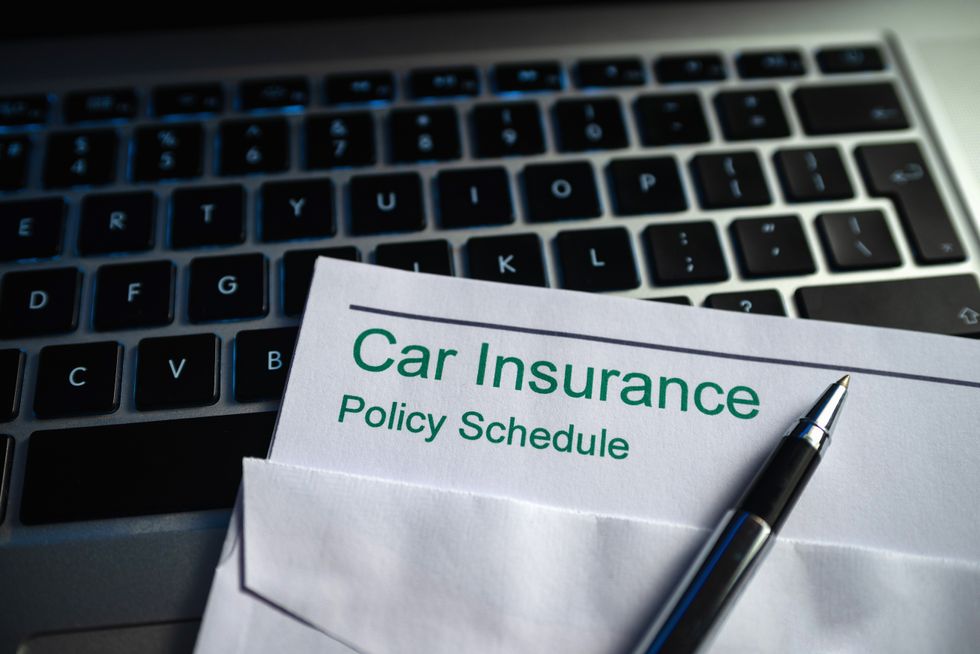



New research reveals that nearly one-fifth of British motorists do not know about proper procedures following a road traffic accident, potentially risking car insurance issues.
The study found that 18 per cent of UK drivers feel uncertain about appropriate steps to take after a collision, which puts many motorists at risk of invalidating their insurance coverage or negatively affecting their claims processes.
The findings emerge as road safety concerns mount, with over 128,000 road users involved in accidents during 2024.
Despite more than four-fifths of drivers claiming confidence in their post-accident knowledge, the research uncovered significant gaps in actual practice.

Experts are calling on drivers to make themselves aware of what to do when they get in an accident
|GETTY
Many motorists skip essential steps that could protect their interests and ensure proper insurance coverage, which experts say highlights a critical need for better driver education about post-accident protocols.
The research exposed alarming statistics about driver behaviour following collisions. Nearly half of motorists who experienced accidents failed to collect the other driver's information.
Almost two-thirds (61 per cent) of drivers neglected to capture photographic or video documentation of the scene.
Half of those involved in accidents didn't notify their insurance providers at the time of the incident, while 32 per cent of accident-involved drivers contacted family members. Only eight per cent made this their initial action.

Drivers of all ages are still facing expensive car insurance prices
| GETTYPerhaps most concerning, the research discovered that 49 per cent of British motorists remain unaware of their obligation to report all accidents to their insurance companies.
Six per cent of drivers admitted they never declared their accident to their insurer, with experts warning that these oversights can have serious consequences, potentially voiding policies, increasing premiums, or leading to future coverage refusals.
A particularly risky behaviour identified in the research involves apologising at accident scenes.
Nearly one-third of drivers who experienced collisions admitted to saying sorry, potentially jeopardising their insurance claims.
The study found that while apologising doesn't constitute a legal admission of fault, other parties might use such statements against drivers during claims processes.
Younger motorists proved especially vulnerable to this mistake, with 25 per cent of 18 to 24-year-olds apologising despite bearing no responsibility for the incident.
In contrast, older motorists demonstrated greater restraint, with only 14 per cent of 55 to 64-year-olds and 18 per cent of over-65s apologising at accident scenes.
Motoring expert Rhydian Jones, from Confused.com, emphasises the importance of proper accident preparation: "Being involved in an accident on the roads isn't something pleasant to think about, but it's important that motorists are prepared and know what to do if this happens."

Motorists could have their insurance cancelled if they fail to tell their insurer about an accident
| GETTYEssential steps following a collision include checking for injuries, ensuring everyone reaches safety, and contacting emergency services when necessary. Drivers must exchange details with all parties involved and document the accident scene thoroughly.
Jones added: "It's important not to apologise at the scene as this could invalidate your insurance claims if the other party held this against you. This could land you in hot water when making a claim."
The research uncovered that nearly a quarter of drivers experienced minor collisions without informing their insurers. Such non-disclosure can lead to policy invalidation or complete cancellation, even when drivers choose not to pursue claims.
Insurance specialists stress that transparency benefits motorists long-term, making post-accident processes more manageable. Failure to report incidents may be viewed as concealment, potentially resulting in coverage termination and difficulties securing future policies.
